- Home
- Edith Wharton
The Buccaneers Page 2
The Buccaneers Read online
Page 2
Expiation unresponded to embitters the blood, and something within Nan shrank and hardened with each of these rebuffs. But she now seldom exposed herself to them, finding it easier to follow Virginia’s lead and ignore their parent’s admonitions. At the moment, however, she was actually wavering in her allegiance to Virginia. Since she had seen Conchita Closson she was no longer sure that features and complexion were woman’s crowning glory. Long before Mrs. St. George and Mrs. Elmsworth had agreed on a valuation of the newcomer, Nan had fallen under her spell. From the day when she had first seen her come whistling around the corner of the verandah, her restless little head crowned by a flapping Leghorn hat with a rose under the brim, and dragging after her a reluctant poodle with a large red bow, Nan had felt the girl’s careless power. What would Mrs. St. George have said if one of her daughters had strolled along the verandah whistling, and dragging a grotesque-looking toy-shop animal at her heels? Miss Closson seemed troubled by no such considerations. She sat down on the upper step of the verandah, pulled a lump of molasses candy from her pocket, and invited the poodle to “get up and waltz for it”: which the uncanny animal did by rising on his hind legs and performing a series of unsteady circles before his mistress while she licked the molasses from her fingers. Every rocking-chair on the verandah stopped creaking as its occupant sat upright to view the show. “Circus performance!” Mrs. St. George commented to Mrs. Elmsworth; and the latter retorted with her vulgar laugh: “Looks as if the two of ’em were used to showing off, don’t it?”
Nan overheard the comments, and felt sure the two mothers were mistaken. The Closson girl was obviously unaware that anyone was looking at her and her absurd dog; it was that absence of self-consciousness which fascinated Nan. Virginia was intensely self-conscious; she really thought just as much as her mother of “what people would say”; and even Lizzy Elmsworth, though she was so much cleverer at concealing her thoughts, was not really simple and natural; she merely affected unaffectedness. It frightened Nan a little to find herself thinking these things, but they forced themselves upon her; and when Mrs. St. George issued the order that her daughters were not to associate with “the strange girl” (as if they didn’t all know her name!) Nan felt a rush of anger. Virginia sauntered on, probably content to have shaken her mother’s confidence in the details of her dress (a matter of much anxious thought to Mrs. St. George); but Nan stopped short.
“Why can’t I go with Conchita if she wants me to?”
Mrs. St. George’s faintly withered pink turned pale. “If she wants you to? Annabel St. George, what do you mean by talking to me that way? What on earth do you care for what a girl like that wants?”
Nan ground her heels into the crack between the verandah boards. “I think she’s lovely.”
Mrs. St. George’s small nose was wrinkled with disdain. The small mouth under it drooped disgustedly. She was “Mother smelling a drain.”
“Well, when that new governess comes next week, I guess you’ll find she feels just the way I do about those people. And you’ll have to do what she tells you, anyhow,” Mrs. St. George helplessly concluded.
A chill of dismay rushed over Nan. The new governess! She had never really believed in that remote bogey. She had an idea that Mrs. St. George and Virginia had cooked up the legend between them, in order to be able to say “Annabel’s governess”; as they had once heard that tall proud Mrs. Eglinton from New York, who had stayed only one night at the hotel, say to the landlord: “You must be sure to put my daughter’s governess in the room next to her.” Nan had never believed that the affair of the governess would go beyond talking; but now she seemed to hear the snap of the hand-cuffs on her wrist.
“A governess—me?”
Mrs. St. George moistened her lips nervously. “All stylish girls have governesses the year before they come out.”
“I’m not coming out next year—I’m only sixteen,” Nan protested.
“Well, they have them for two years before. That Eglinton girl had.”
“Oh, that Eglinton girl! She looked at us all as if we weren’t there.”
“Well, that’s the way for a lady to look at strangers,” said Mrs. St. George heroically.
Nan’s heart grew black within her. “I’ll kill her if she tries to interfere with me.”
“You’ll drive down to the station on Monday to meet her,” Mrs. St. George shrilled back, defiant. Nan turned on her heel and walked away.
II.
The Closson girl had already disappeared with her dog, and Nan suspected that she had taken him for a game of ball in the rough field adjoining the meagre grounds of the hotel. Nan went down the steps of the porch and, crossing the drive, espied the slim Conchita whirling a ball high overhead while the dog spun about frantically at her feet. Nan had so far exchanged only a few shy words with her, and in ordinary circumstances would hardly have dared to join her now. But she had reached an acute crisis in her life, and her need for sympathy and help overcame her shyness. She vaulted over the fence into the field and went up to Miss Closson.
“That’s a lovely dog,” she said.
Miss Closson flung the ball for her poodle, and turned with a smile to Nan. “Isn’t he a real darling?”
Nan stood twisting one foot about the other. “Have you ever had a governess?” she asked abruptly.
Miss Closson opened with a stare of wonder the darkly fringed eyes which shone like pale aquamarines on her small dusky face. “Me? A governess? Mercy, no—what for?”
“That’s what I say! My mother and Virginia have cooked it up between them. I’m going to have one next week.”
“Land’s sake! You’re not? She’s coming here?”
Nan nodded sulkily.
“Well—” Conchita murmured.
“What’ll I do about it—what would you?” Nan burst out, on the brink of tears.
Miss Closson drew her lids together meditatively; then she stooped with deliberation to the poodle, and threw the ball for him again.
“I said I’d kill her,” broke from Nan in a hoarse whisper.
The other laughed. “I wouldn’t do that; not right off, anyhow. I’d get round her first.”
“Get round her? How can I? I’ve got to do whatever she wants.”
“No, you haven’t. Make her want whatever you want.”
“How can I? Oh, can I call you Conchita? It’s such a lovely name. Mine’s Annabel, really, but everybody calls me Nan.... Well, but how can I get round that governess? She’ll try to make me learn lists of dates—that’s what she’s paid for.”
Conchita’s expressive face became one grimace of disapproval. “Well, I should hate that like castor-oil. But perhaps she won’t. I knew a girl at Rio who had a governess, and she was hardly any older than the girl, and she used to ... well, carry messages and letters for her, the governess did ... and in the evening she used to slip out to ... to see a friend ... and she and the girl knew all each other’s secrets; so you see they couldn’t tell on each other, neither one of them couldn’t....”
“Oh, I see,” said Nan, with a feigned air of knowingness. But she was suddenly conscious of a queer sensation in her throat, almost of physical sickness. Conchita’s laughing eyes seemed whispering to her through half-drawn lids. She admired Conchita as much as ever—but she was not sure she liked her at that moment.
Conchita was obviously not aware of having produced an unfavourable impression. “Out in Rio I knew a girl who got married that way. The governess carried her notes for her.... Do you want to get married?” she asked abruptly.
Nan flushed and stared. Getting married was an inexhaustible theme of confidential talk between her sister and the Elmsworth girls; but she felt herself too young and inexperienced to take part in their discussions. Once, at one of the hotel dances, a young fellow called Roy Gilling had picked up her handkerchief, and refused to give it back. She had seen him raise it meaningly to his young moustache before he slipped it into his pocket; but the incident had left her annoyed and
bewildered rather than excited, and she had not been sorry when, soon afterward, he rather pointedly transferred his attentions to Mabel Elmsworth. She knew Mabel Elmsworth had already been kissed behind a door; and Nan’s own sister, Virginia, had too, Nan suspected. She herself had no definite prejudices in the matter; she simply felt unprepared as yet to consider matrimonial plans. She stooped to stroke the poodle, and answered, without looking up: “Not to anybody I’ve seen yet.”
The other considered her curiously. “I suppose you like love-making better, eh?” She spoke in a soft drawl, with a languid rippling of the “r”s.
Nan felt her blood mounting again; one of her quick blushes steeped her in distress. Did she—didn’t she—like “love-making,” as this girl crudely called it (the others always spoke of it as flirting)? Nan had not been subjected to any warmer advances than Mr. Gilling’s, and the obvious answer was that she didn’t know, having had no experience of such matters; but she had the reluctance of youth to confess to its youthfulness, and she also felt that her likes and dislikes were no business of this strange girl’s. She gave a vague laugh and said loftily: “I think it’s silly.”
Conchita laughed too—a low deliberate laugh, full of repressed and tantalizing mystery. Once more she flung the ball for her intently watching poodle; then she thrust a hand into a fold of her dress, and pulled out a crumpled packet of cigarettes. “Here—have one! Nobody’ll see us out here,” she suggested amicably.
Nan’s heart gave an excited leap. Her own sister and the Elmsworth girls already smoked in secret, removing the traces of their indiscretion by consuming little highly perfumed pink lozenges furtively acquired from the hotel barber; but they had never offered to induct Nan into these forbidden rites, which, by awful oaths, they bound her not to reveal to their parents. It was Nan’s first cigarette, and while her fingers twitched for it she asked herself in terror: “Suppose it should make me sick right before her?”
But Nan, in spite of her tremors, was not the girl to refuse what looked like a dare, nor even to ask if in this open field they were really safe from unwanted eyes. There was a clump of low shrubby trees at the farther end, and Conchita strolled there and mounted the fence-rail, from which her slender uncovered ankles dangled gracefully. Nan swung up beside her, took a cigarette, and bent toward the match which her companion proffered. There was an awful silence while she put the forbidden object to her lips and drew a frightened breath; the acrid taste of the tobacco struck her palate sharply, but in another moment a pleasant fragrance filled her nose and throat. She puffed again, and knew she was going to like it. Instantly her mood passed from timidity to triumph, and she wrinkled her nose critically and threw back her head, as her father did when he was tasting a new brand of cigar. “These are all right—where do you get them?” she enquired with a careless air; and then, suddenly forgetful of the experience her tone implied, she rushed on in a breathless little-girl voice: “Oh, Conchita, won’t you show me how you make those lovely rings? Jinny doesn’t really do them right, nor the Elmsworth girls either.”
Miss Closson in turn threw back her head with a smile. She drew a deep breath and, removing the cigarette from her lips, curved them to a rosy circle through which she sent a wreath of misty smoke-rings. “That’s how,” she laughed, and pushed the packet into Nan’s hands. “You can practise at night,” she said good-humouredly, as she jumped from the rail.
Nan wandered back to the hotel, so much elated by her success as a smoker that her dread of the governess grew fainter. On the hotel steps she was further reassured by the glimpse, through the lobby doors, of a tall broad-shouldered man in a Panama hat and light-gray suit who, his linen duster over his arm, his portmanteaux at his feet, had paused to light a big cigar and shake hands with the clerk. Nan gave a start of joy. She had not known that her father was arriving that afternoon, and the mere sight of him banished all her cares. Nan had a blind faith in her father’s faculty for helping people out of difficulties—a faith based not on actual experience (for Colonel St. George usually dealt with difficulties by a wave of dismissal which swept them into somebody else’s lap), but on his easy contempt for feminine fusses, and his way of saying to his youngest daughter: “You just call on me, child, when things want straightening out.” Perhaps he would straighten out even this nonsense about the governess; and meanwhile the mere thought of his large powerful presence, his big cologne-scented hands, his splendid yellow moustache and easy rolling gait, cleared the air of the cobwebs in which Mrs. St. George was always enveloped.
“Hullo, daughter! What’s the news?” The Colonel greeted Nan with a resounding kiss, and stood with one arm about her, scrutinizing her lifted face.
“I’m glad you’ve come, Father,” she said, and then shrank back a little, fearful lest a whiff of cigarette smoke should betray her.
“Your mother taking her afternoon nap, I suppose?” the Colonel continued jovially. “Well, come along with me. See here, Charlie” (to the clerk), “send those things right along to my room, will you? There’s something in them of interest to this young lady.”
The clerk signalled to a black porter, and, preceded by his bags, the Colonel mounted the stairs with Nan.
“Oh, Father! It’s lovely to have you! What I want to ask you is—”
But the Colonel was digging into the depths of one of the portmanteaux and scattering over the bed various parts of a showy but somewhat crumpled wardrobe. “Here now; you wait,” he puffed, pausing to mop his broad white forehead with a fine cambric handkerchief. He pulled out two parcels, and beckoned to Nan. “Here’s some fancy notions for you and Jinny; the girl in the store said it was what the Newport belles are wearing this summer. And this is for your mother, when she wakes up.” He took the tissue-paper wrappings from a small red morocco case and pressed the spring of the lid. Before Nan’s dazzled eyes lay a diamond brooch formed of a spray of briar-roses. She gave an admiring gasp. “Well, how’s that for style?” laughed her father.
“Oh, Father—” She paused, and looked at him with a faint touch of apprehension.
“Well?” the Colonel repeated. His laugh had an emptiness under it, like the hollow under a loud wave; Nan knew the sound. “Is it a present for Mother?” she asked doubtfully.
“Why, who’d you think it was for—not you?” he joked, his voice slightly less assured.
Nan twisted one foot about the other. “It’s terribly expensive, isn’t it?”
“Why, you critical imp, you—what’s the matter if it is?”
“Well, the last time you brought Mother a piece of jewelry there was an all-night row after it, about cards or something,” said Nan judicially.
The Colonel burst out laughing, and pinched her chin. “Well, well! You fear the Greeks, eh, do you? How does it go? Timeo Danaos ...”
“What Greeks?”
Her father raised his handsome ironic eyebrows. Nan knew he was proud of his far-off smattering of college culture, and wished she could have understood the allusion. “Haven’t they even taught you that much Latin at your school? Well, I guess your mother’s right; you do need a governess.”
Nan paled, and forgot the Greeks. “Oh, Father; that’s what I wanted to speak to you about—”
“What about?”
“That governess. I’m going to hate her, you know. She’s going to make me learn lists of dates, the way the Eglinton girl had to. And Mother’ll fill her up with silly stories about us, and tell her we mustn’t do this and we mustn’t say that. I don’t believe she’ll even let me go with Conchita Closson, because Mother says Mrs. Closson’s divorced.”
The Colonel looked up sharply. “Oh, your mother says that, does she? She’s down on the Clossons? I suppose she would be.” He picked up the morocco case and examined the brooch critically. “Yes, that’s a good piece; Black, Starr and Frost. And I don’t mind telling you that you’re right: it cost me a pretty penny. But I’ve got to persuade your mother to be polite to Mrs. Closson—see?” He wrinkled up his fa
ce in the funny way he had and took his daughter by the shoulders. “Business matter, you understand—strictly between ourselves. I need Closson; got to have him. And he’s fretted to death about the way all the women cold-shoulder his wife.... I’ll tell you what, Nan; suppose you and I form a league, defensive and offensive? You help me to talk round your mother, and get her to be decent to Mrs. Closson, and persuade the others to be, and to let the girl go round with all of you; and I’ll fix it up with the governess so you don’t have to learn too many dates.”
Nan uttered a cry of joy. Already the clouds were lifting. “Oh, Father, you’re perfectly grand! I knew everything would be all right as soon as you got here! I’ll do all I can about Mother—and you’ll tell the governess I’m to go round all I like with Conchita?” She flung herself into the Colonel’s comforting embrace.
III.
Mrs. St. George, had she looked back far enough, could have recalled a time when she had all of Nan’s faith in the Colonel’s restorative powers; when to carry her difficulties to him seemed the natural thing, and his way of laughing at them gave her the illusion that they were solved. Those days were past; she had long been aware that most of her difficulties came from the Colonel instead of being solved by him. But she admired him as much as ever—thought him in fact even handsomer than when, before the Civil War, he had dawned on her dazzled sight at a White Sulphur Springs ball, in the uniform of a captain of militia; and now that he had become prominent in Wall Street, where life seemed to grow more feverish every day, it was only natural that he should require a little relaxation, though she deplored its always meaning poker and whisky, and sometimes, she feared, the third element celebrated in the song. Though Mrs. St. George was now a worried middle-aged woman with grown-up daughters, it cost her as much to resign herself to this as when she had first found in her husband’s pocket a letter she was not meant to read. But there was nothing to be done about it, or about the whisky and poker, and the visits to establishments where game and champagne were served at all hours, and gentlemen who had won at roulette or the races supped in meretricious company. All this had long since been part of Mrs. St. George’s consciousness, yet she was half consoled, when the Colonel joined his family at Long Branch or Saratoga, by the knowledge that all the other worried and middle-aged wives in the long hotel dining-room envied her her splendid husband.

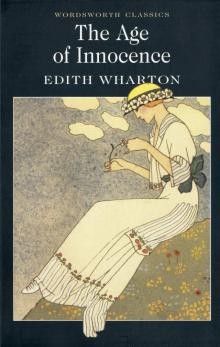 The Age of Innocence
The Age of Innocence The Reef
The Reef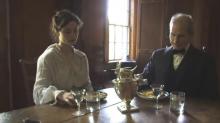 Summer
Summer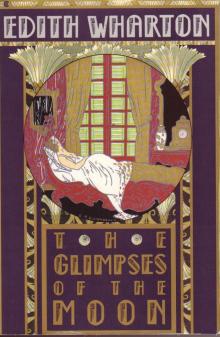 The Glimpses of the Moon
The Glimpses of the Moon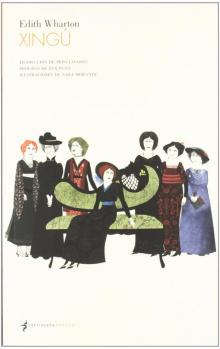 Xingu
Xingu The Fruit of the Tree
The Fruit of the Tree Fast and Loose
Fast and Loose Artemis to Actaeon and Other Verse
Artemis to Actaeon and Other Verse The Line of Least Resistance
The Line of Least Resistance The Lamp of Psyche
The Lamp of Psyche The Reckoning
The Reckoning Afterward
Afterward The New York Stories of Edith Wharton
The New York Stories of Edith Wharton The 2014 Halloween Horrors Megapack
The 2014 Halloween Horrors Megapack 'Copy': A Dialogue
'Copy': A Dialogue The Recovery
The Recovery The Fulness of Life
The Fulness of Life Early Short Stories Vol. 1
Early Short Stories Vol. 1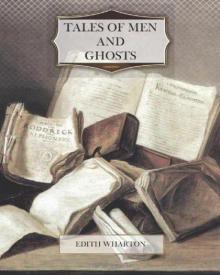 Tales of Men and Ghosts
Tales of Men and Ghosts The House of the Dead Hand
The House of the Dead Hand That Good May Come
That Good May Come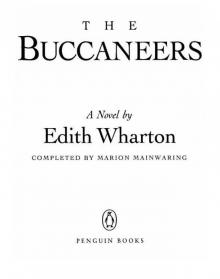 The Buccaneers
The Buccaneers Other Times, Other Manners
Other Times, Other Manners The Hermit and the Wild Woman
The Hermit and the Wild Woman Kerfol
Kerfol The Duchess at Prayer
The Duchess at Prayer Bunner Sisters
Bunner Sisters The Choice
The Choice Madame De Treymes
Madame De Treymes Ethan Frome, Summer, Bunner Sisters
Ethan Frome, Summer, Bunner Sisters In Morocco
In Morocco The Valley of Decision
The Valley of Decision Age of Innocence (Barnes & Noble Classics Series)
Age of Innocence (Barnes & Noble Classics Series) The Angel at the Grave
The Angel at the Grave April Showers
April Showers Sanctuary
Sanctuary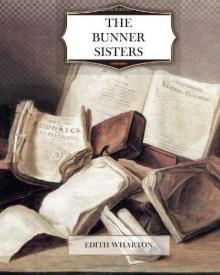 The Bunner Sisters
The Bunner Sisters Mrs. Manstey's View
Mrs. Manstey's View Writing a War Story
Writing a War Story The Custom of the Country
The Custom of the Country In Trust
In Trust The Triumph of the Night
The Triumph of the Night The Hermit and the Wild Woman, and Other Stories
The Hermit and the Wild Woman, and Other Stories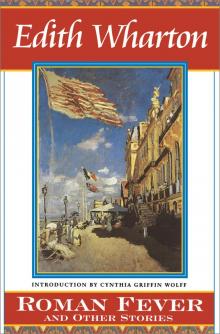 Roman Fever and Other Stories
Roman Fever and Other Stories The Mission of Jane
The Mission of Jane The Descent of Man and Other Stories
The Descent of Man and Other Stories Coming Home
Coming Home The Touchstone
The Touchstone Early Short Stories Vol. 2
Early Short Stories Vol. 2 Edith Wharton's Verse, 1879-1919, from various journals.
Edith Wharton's Verse, 1879-1919, from various journals.